With the expedited shift to work-from-home and the explosion of streaming, the need for a quality router has never been greater. In today’s connected world, virtually every household is packed with phones, computers, smart TVs, and many other devices, all fighting for bandwidth.
Your ISP might try to sell you their router, but it’s almost a guarantee that it will be overpriced and will underperform. If you want a router that offers better throughput, range, and features, check out our top picks.
- Best Wi-Fi Router for Most
- Best Mesh Wi-Fi System
- Best for Enthusiasts
- Best Gaming Router
- Best Budget Router
Best Wi-Fi Router for Most Households
D-Link DIR-882 AC2600
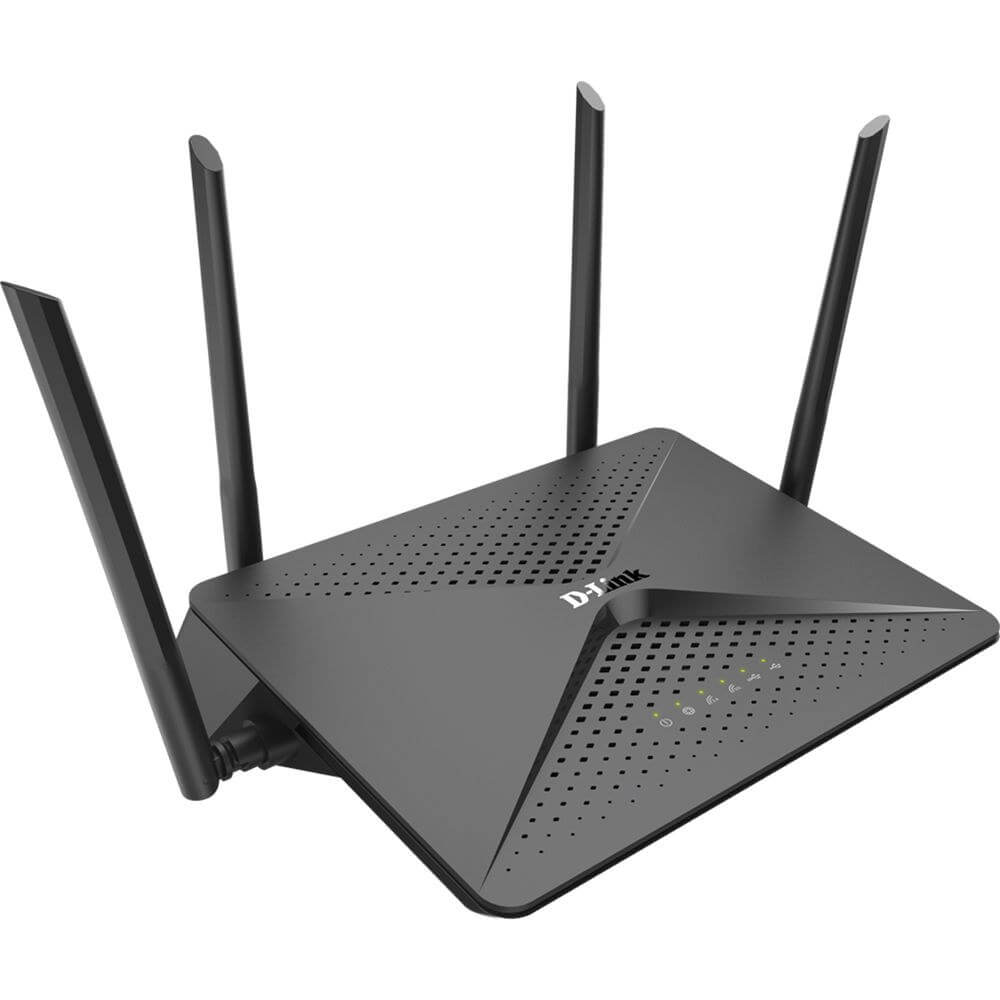
The D-Link DIR-882 has performed very well in our tests previously, even going head-to-head with brand new Wi-Fi 6 systems. We’ve recommended the Asus RT-AC68U in the past, but now we’re moving up to the next speed tier. The 68U is an AC1900-class device while the DIR-882 is an AC2600-class device. Of course, these speeds don’t transfer well to real-world settings, but the DIR-882 will be comparatively faster. With work-from-home becoming much more important as well as increased use of streaming media, a faster Wi-Fi signal is certainly a plus.
In our tests, we achieved file transfer speeds above 600Mbps at close range and 200-300Mbps a room or two away. This should be plenty for the average home user. Don’t expect any crazy customizations or advanced networking parameters, but the DIR-882 should get the job done in the vast majority of scenarios.
We’re not recommending a Wi-Fi 6 system in this category yet since they are still relatively expensive and there just aren’t that many clients that support the new technology (for Wi-Fi 6 look below in our enthusiasts recommendations).
At $120-130, the D-Link is right in the price range as last year’s pick. Who should buy this router? Someone with a small to medium sized living space with 5-10 clients. Someone that doesn’t want the absolute cheapest device out there, but doesn’t need to pay extra for fancy features that they won’t end up using. If that’s you, this is your new router.
Best Mesh Wi-Fi System
Netgear Orbi RBK50
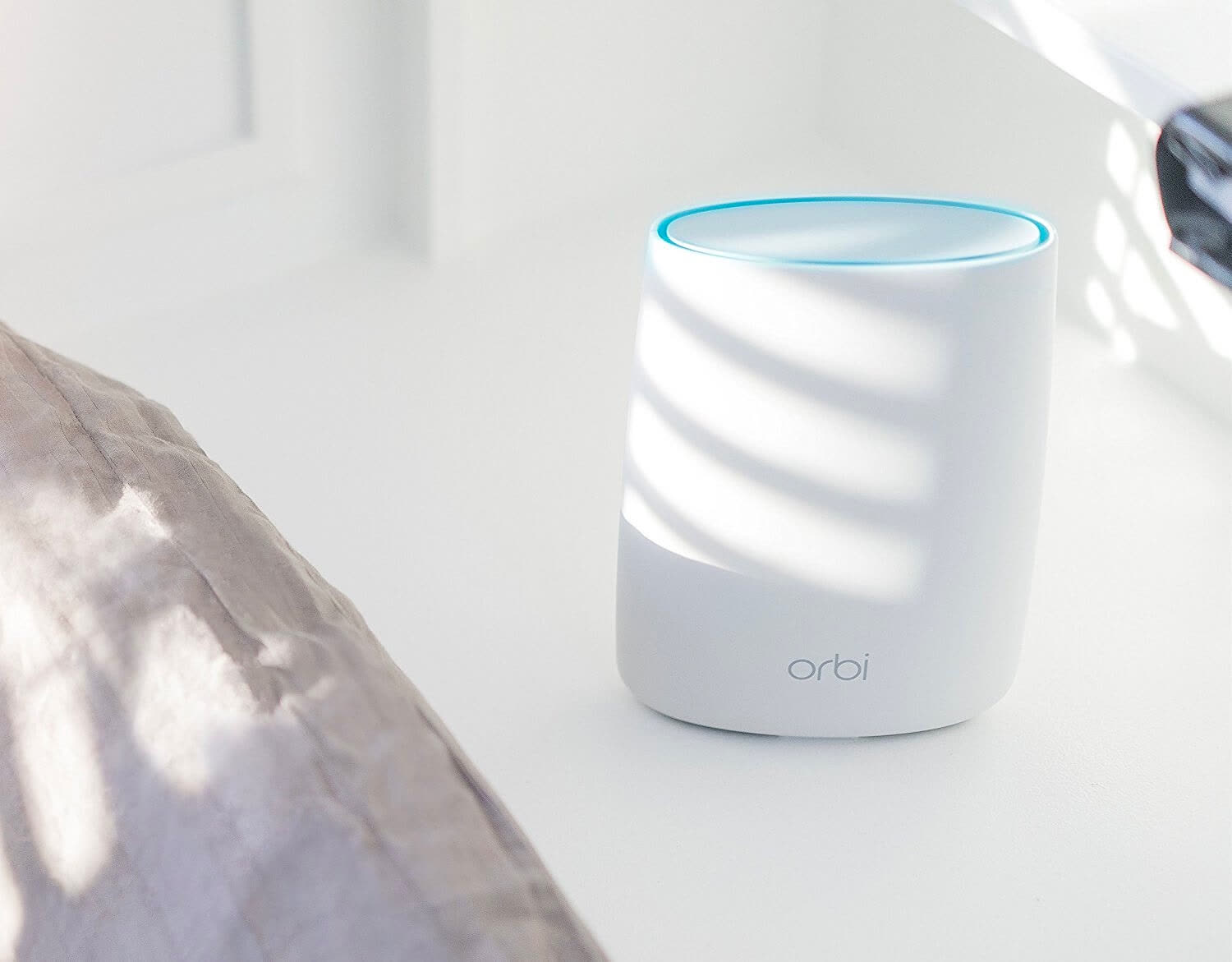
The Netgear Orbi was the best performer our Mesh Wi-Fi roundup last year, receiving top recommendations among several other competing systems. Mesh Wi-Fi systems have become a popular segment. They are designed for medium to large houses where a single router doesn’t reach every corner. Mesh systems are more expensive than standard routers, but provide a host of benefits including extended range and seamless connectivity, an easy setup process, and advanced management interface.
A properly implemented mesh network will be leaps and bounds better than a traditional router with a cheap range booster. While range boosters make it seem like you have good signal all around your house, they almost always deliver terrible speeds and poor reliability. Today’s mesh systems use advanced routing algorithms to maintain high speeds even at range. They typically use dedicated channels for internal backhaul, while basic extenders leech off your main connection.
Almost every major home networking provider has an entry in this market, but some are better than others, and Netgear’s Orbi kit is competitively priced at $290. Do note however this is a Wi-Fi 5 only system. Wi-Fi 6 routers are now widely available and we have tested them here. Wi-Fi 6 devices are certainly faster, but for the next few years, the vast majority of consumers won’t see a difference in daily activity.
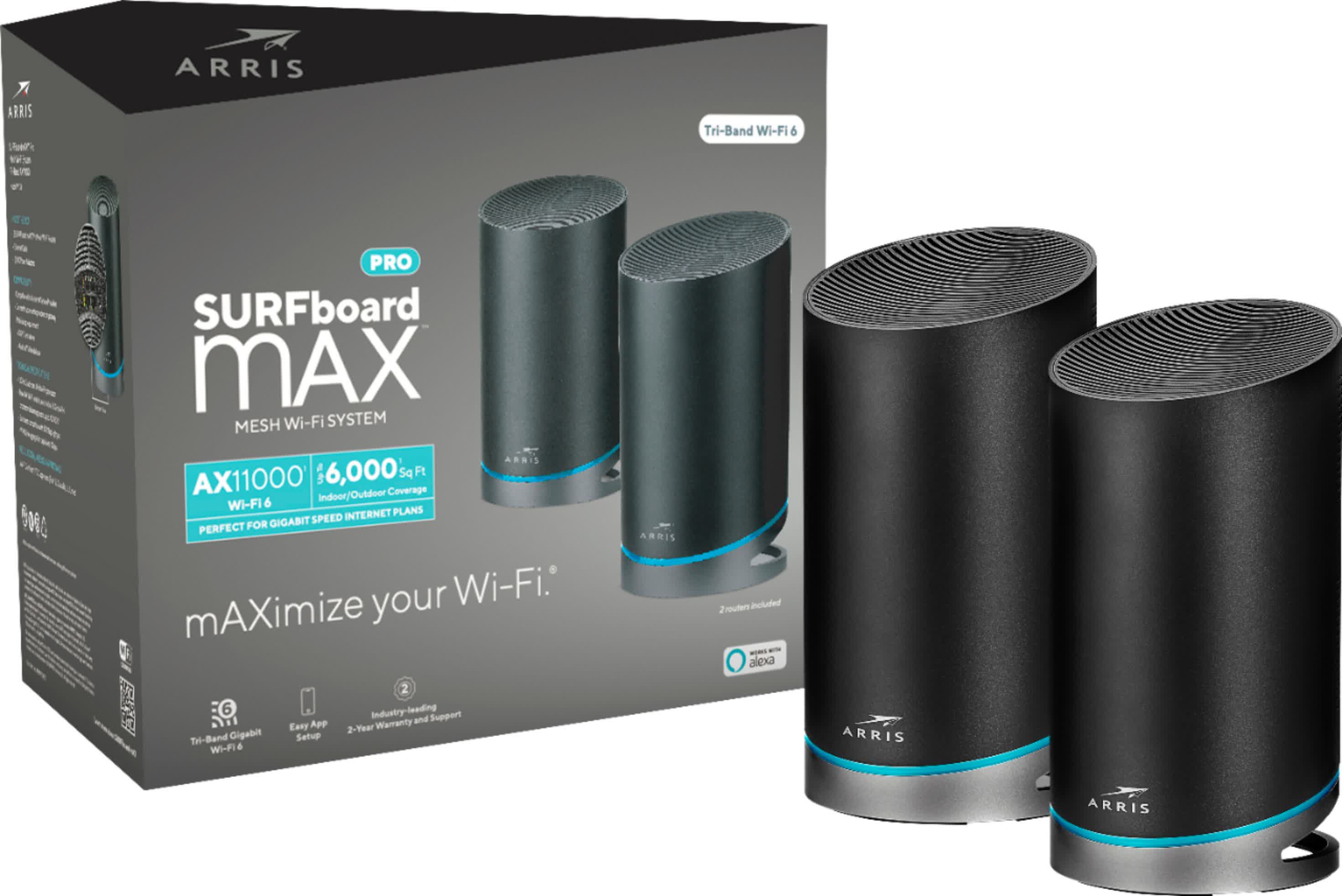
We’re still recommending the Netgear Orbi RBK50 for most people, due to its strong performance and great price point. We also like the built-in four port switch since many other mesh systems have just two Ethernet ports, and in some cases less than that.
However, if you’re someone that always wants the latest and greatest, our Wi-Fi 6 mesh recommendations include the Arris SURFboard mAX Pro and Netgear’s own RBK852 system. The Arris was our top pick from this year’s roundup. It’s expensive and the units are a bit bulky, but it’s the fastest system we’ve ever tested.
Best for Enthusiasts / Prosumers
Asus RT-AX3000 (RT-AX58U)

The Asus RT-AX3000 achieved the fastest Wi-Fi speed we’ve ever measured. At roughly 950Mbps, that is full gigabit wireless speed. That was measured right next to the router in an unrealistic environment, but it’s still impressive. This result as well as the device’s relatively low price is why we’re recommending it as our top pick for enthusiasts. Generally speaking, a standalone router will be faster than a mesh system since there is less overhead to deal with. That’s why we typically don’t recommend mesh systems for smaller spaces.
Along these lines, another feature of the RT-AX3000 that we like is “AiMesh” support (it can build a mesh network with compatible devices). There were some usability issues when the technology first launched, but it has come a long way. If you purchase one of these devices now and realize you don’t have enough coverage, you can seamlessly expand your network down the road with other AiMesh routers. This is a much better solution than buying those cheap range extenders since you won’t have to deal with the confusion of “MyNetwork 2.4”, “MyNetwork 5.0″, MyNetwork 2.4 Extended”, and “MyNetwork 5.0 Extended”. The system leaves you with a single network that lets you move around without having to reconnect.
At around $175 each, you can pick up two of these and put together a killer Wi-Fi 6 mesh system for the same price as competing systems. That’s also significantly cheaper than some of the $600-700 flagship systems.
When testing the Asus RT-AX3000, we liked the simplicity of the setup process while still providing advanced features and customization. However, if you want even more control over your network, you probably want to move beyond consumer devices. Ubiquiti’s UniFi 6 Lite is currently available for pre-order at $99 each. While we haven’t tested it, their products have been the gold standard for small office and advanced home networking.
Best Gaming Router
Asus RT-AX88U
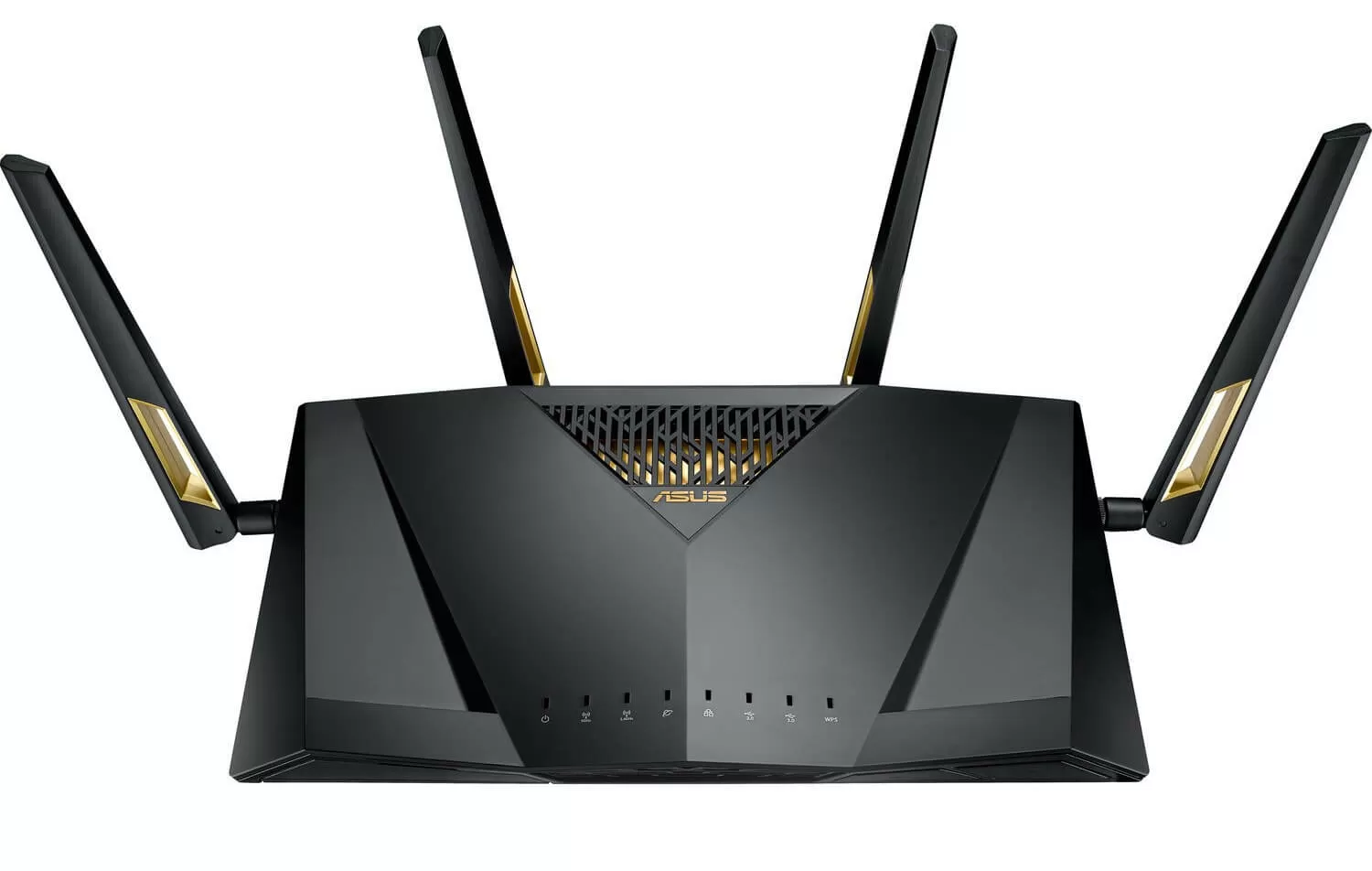
This router is absolutely overkill, but if you need super fast speeds, the Asus RT-AX88U won’t disappoint. This is one of the first Wi-Fi 6 (802.11ax) routers to hit the market, however everything is backwards compatible which means the AX88U still offers incredible 2.4GHz and 5GHz performance to existing devices.
Gaming routers are a tricky category and they aren’t the best solution for everyone. Modern games are almost always dependent on latency instead of bandwidth. Speeds listed in the marketing materials are often grossly exaggerated and you’ll likely never achieve anything close to it. Despite all the other options like mesh networking and powerline adapters, if you still think you need a gaming router, the RT-AX88U is a great choice.
The router comes packed with useful features that improve performance and make the system easier to use. For example, OFDMA increases spectral efficiency and network capacity. The AX88U supports up to 1024-QAM which allows it to send four times as much data per transmission as older 256-QAM systems. It also supports 4×4 MU-MIMO to allow many clients to connect at once and comes packing eight LAN ports.
Once routers start getting this fast, the single gigabit Ethernet connection may become a bottleneck. The RT-AX88U addresses this with Link Aggregation. Assuming whatever you connect to on the other side is fast enough, aggregation allows you to combine the speed of multiple Ethernet ports into a single connection. If you are trying to cover a large area, the RT-AX88U has support for Asus’ AiMesh, so you’ll be able to add satellite nodes for increased coverage.
Best Budget Router
Netgear R6700 Nighthawk AC1750
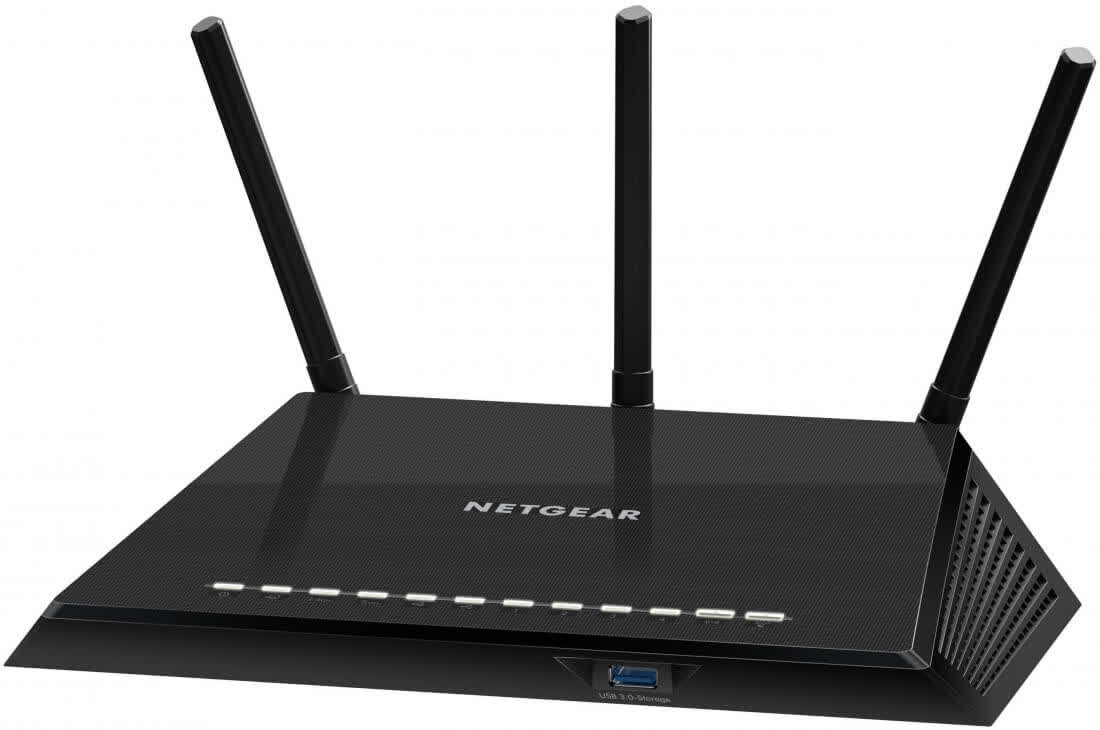
If you want something that is affordable and simply gets the job done, we recommend Netgear’s R6700. It’s an AC1750 router with no frills. It lacks many advanced features of other routers, but for most users, that will be fine. With over 60,000 reviews on Amazon, it’s one of the best selling routers on the market. If you’re setting up a basic system for a less tech savvy relative or friend, this is the way to go, too.
The R6700 will set you back around $80 which is a great deal. There are cheaper alternatives, but some can be more headache than the savings are worth, so we wouldn’t recommend going much lower than the R6700 whether it’s for the lack of security features, updates, or lesser performance. Instead the Netgear R6700 presents a safe bet in the realm of inexpensive wireless routers.
Keep in mind that you may end up wishing you had spent the extra $30-40 or so for something a little better. Wi-Fi is one of those things that you don’t notice when it’s working fine, but you really notice it when it’s not working. If you are only looking to cover a small area and are confident that you only need a basic system, this will do just fine.

